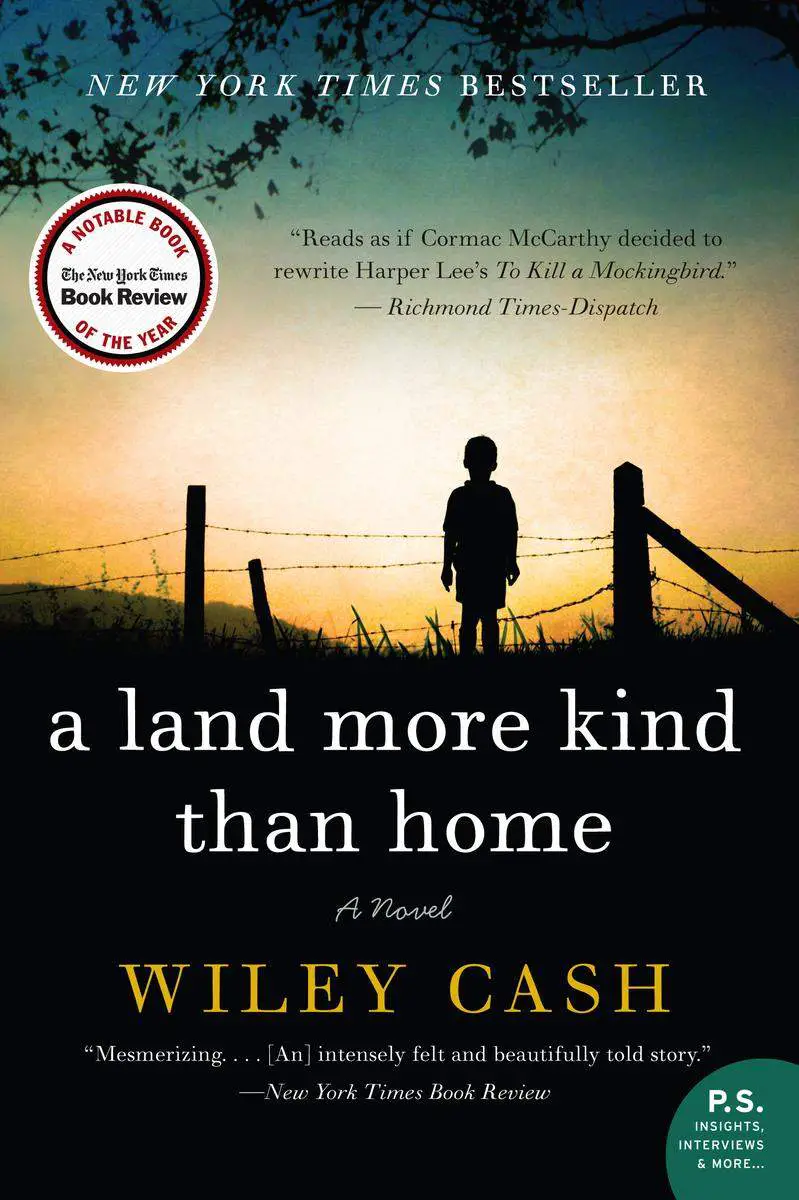A Land More Kind Than Home, by Wiley Cash
Seeing that author Wiley Cash’s third novel, The Last Ballad, is set to release in a week, I thought it would be a good time to revisit his first one.
In A Land More Kind Than Home, Wiley Cash draws on his rural North Carolina upbringing to weave a story both touching and tragic. Using three very different voices – a devout spinster in her 80s, a young boy in a struggling family, and a rural county sheriff who shoulders his own burdens – Cash writes a story not so much about a single tragic moment, but about how small actions and decisions made both deliberately and in innocence can bind together and affect an entire community.
Nine year old Jess Hall lives with his parents and older brother on his family’s small tobacco farm near Asheville on the French Broad River in Madison County. A typical boy, Jess likes playing in the nearby creek with his brother, and he dreams of someday owning a bb gun. He gets into mischief, especially with his best friend Joe Bill, but isn’t a bad boy.
Jess’s older brother, whose name is Christopher but is called Stump by almost everyone, is different from the other kids. Stump is mute, and autistic. He hears fine but has never said a word in his life, just occasional grunts when he wants something, or he might hum to himself. Still, he is pleasant and peaceful enough, and in his family he is loved with his mother believing that his being “touched” is a gift from God. And he always has Jess looking out for him.
But boys being boys, their curiosity can put them at the wrong place at the wrong time, and not even the bond between brothers can protect when innocence intersects with adult ambition.
The real strength of Wiley Cash’s novel is the voice in which he tells it. A Land More Kind Than Home is not a tale told straight on, but instead is full of memories and reminiscences that unfold like unconscious thought, and details that may not speak directly to the plot but create an indelible sense of place and time. The events on which the novel turn are often initiated in unremarkable ways, but swell to significance until they are unable to be turned aside even by those who may have a foreboding of what may be at stake. The result is a tale that does not rely on tension but concern to hold our attention, that does not play to sentimentality but to the achingly familiar that lies close to the heart in all of us.
The three voices that Cash uses to tell his story weave in and around each other, allowing for perspective without obvious exposition, along with pulling us in to how each of these people grasp the situation through their own experiences and tragedies. Jess, with his naïve witness which holds little judgment is played against Sheriff Clem Barefield’s struggle to stay impartial even as his emotions run as strongly as they are buried deep, and Adelaide Lyle threads the entire story together with her insight and remembrances of the community in which she has lived her entire life. It’s a masterful work from an emerging author who treats his characters with respect and yet does not spare them from their failings.
—Sharon Browning


